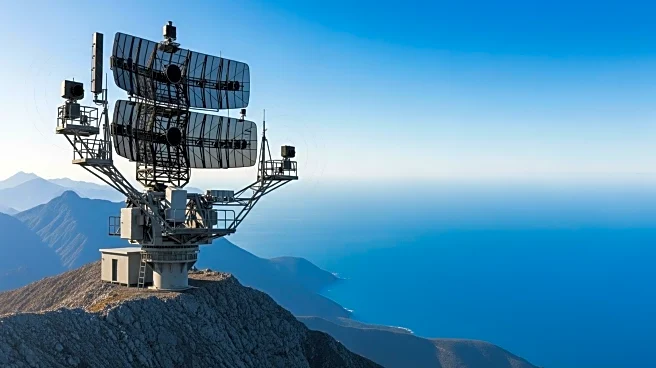What's Happening?
Taiwan's President Lai Ching-te announced plans to expedite the development of the 'Taiwan Shield' or 'T-Dome' air defense system in response to military threats from China. During Taiwan's National Day celebrations, Lai pledged to increase defense spending to over 3% of GDP, aiming for 5% by 2030. The initiative is part of Taiwan's strategy to counteract China's military activities, which include regular incursions by fighter jets and warships. The United States, while not recognizing Taiwan as a sovereign nation, continues to supply military equipment to Taiwan and opposes China's use of force. Lai emphasized Taiwan's role as a 'beacon of democracy' in Asia, contrasting it with China's one-party system.
Why It's Important?
The acceleration of Taiwan's air defense system development is crucial in maintaining regional stability and deterring potential military aggression from China. This move is likely to impact U.S.-Taiwan relations positively, as it aligns with U.S. interests in preventing military conflict in the Taiwan Strait. The increased defense spending signals Taiwan's commitment to self-defense and may influence future U.S. arms sales and military support. Additionally, Taiwan's economic measures to counteract tariffs imposed by President Trump highlight the interconnectedness of defense and economic policies in the region.
What's Next?
Taiwan's defense strategy will likely continue to evolve, with potential procurement of anti-drone systems and further military collaborations with the U.S. The development of the 'T-Dome' system may lead to increased military exercises and technological advancements. Political reactions from China are expected, as Taiwan's defense initiatives challenge China's territorial claims. The U.S. may also respond by reinforcing its military presence in the region to support Taiwan's defense efforts.
Beyond the Headlines
Taiwan's defense strategy reflects broader geopolitical tensions in the Asia-Pacific region, where democratic values and authoritarian governance are in conflict. The emphasis on defense spending and technological development may lead to ethical debates about military escalation and the balance between security and diplomacy. Taiwan's approach to maintaining peace and stability could serve as a model for other nations facing similar threats.











